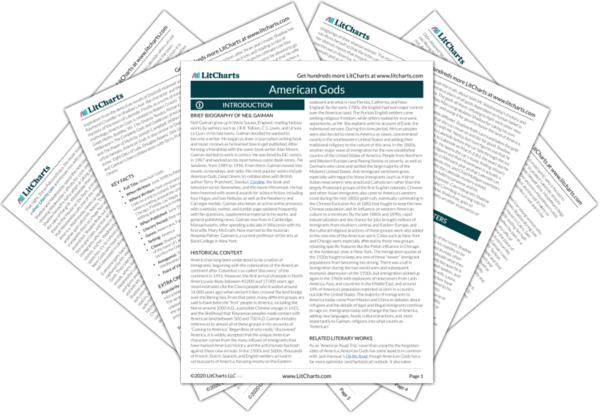LitCharts assigns a color and icon to each theme in American Gods, which you can use to track the themes throughout the work.
Mythology, Belief, and Community
Life, Death, Desire, and Sacrifice
Plurality and the Power of the Individual in America
The Sacredness of American Land
